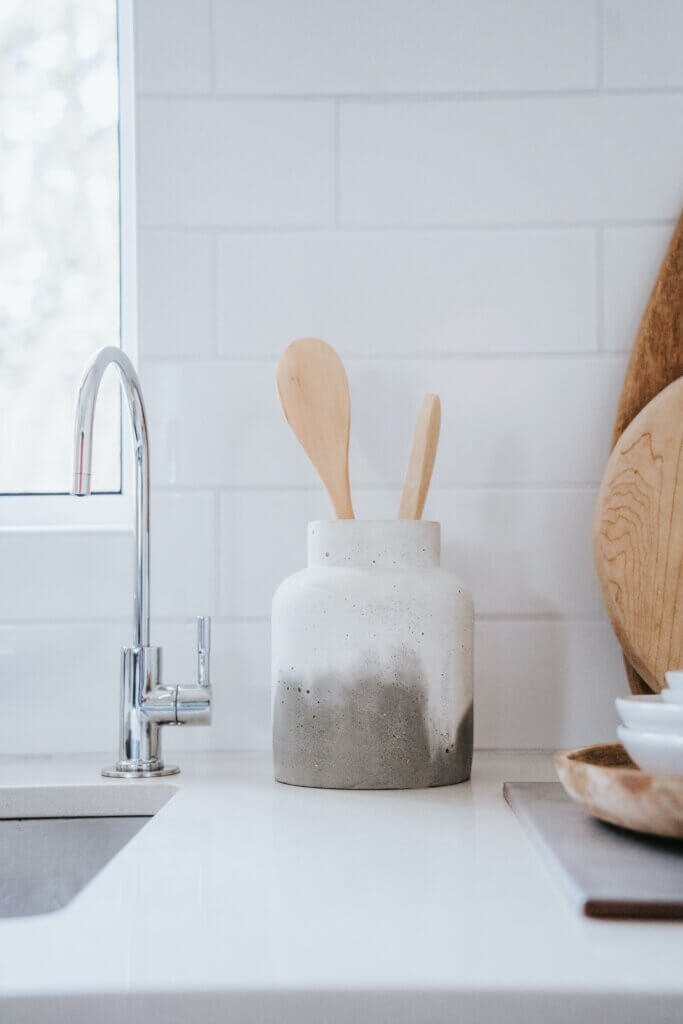Are you tired of struggling to peel hard-boiled eggs seamlessly, only to end up with a mess of broken shells? Look no further! In this article, we’ll unveil some ingenious kitchen hacks that will make peeling hard-boiled eggs a breeze. Say goodbye to frustrating peeling experiences and hello to perfectly smooth and effortlessly peeled eggs. Get ready to revolutionize your egg-peeling game with these brilliant tips and tricks.

Choosing the Right Eggs
When it comes to making hard-boiled eggs, the first step is to choose the right eggs. The freshness of the eggs is crucial in determining the outcome of your boiled eggs. Fresher eggs are generally easier to peel than older ones. So, how can you determine the freshness of an egg?
Freshness Matters
To check the freshness of an egg, simply place it in a bowl of water. If the egg sinks to the bottom and lays flat on its side, it is fresh and perfect for boiling. On the other hand, if it stands upright at the bottom or floats to the surface, it is not as fresh and may not yield the best results when boiled.
When possible, try to choose eggs that are a few days old but still within their expiration date. This will ensure that the eggs are not too fresh, making them easier to peel.
Size and Age of Eggs
In addition to freshness, the size and age of the eggs can also impact the boiling process. Generally, larger eggs take slightly longer to cook than smaller ones. If you prefer a softer yolk, you can reduce the cooking time by a minute or two for smaller eggs.
As for the age of the eggs, it is recommended to use eggs that have been stored in the refrigerator for at least one week. This allows the eggs to age slightly, which can make peeling easier.
Boiling the Eggs
Now that you have selected the right eggs, it’s time to move on to boiling them. Here are a few tips to ensure perfectly boiled eggs every time.
Selecting the Pot
Choosing the right pot for boiling your eggs is important. Make sure the pot is deep enough to accommodate the eggs in a single layer and has enough room for water to circulate freely. Using a pot that is too small may result in uneven cooking.
Adding Salt or Vinegar to the Water
Adding salt or vinegar to the water can help prevent the eggs from cracking. The salt or vinegar strengthens the egg whites, reducing the chance of them leaking out if the shell cracks during cooking.
Boiling Time
The boiling time for eggs depends on the desired doneness. For soft-boiled eggs with a runny yolk, cook them for about 4-5 minutes. For medium-boiled eggs with a slightly firmer yolk, cook them for 6-7 minutes. And for hard-boiled eggs with a fully set yolk, cook them for 8-10 minutes.
Keep in mind that the cooking time may vary depending on the size of the eggs and the altitude at which you are cooking. It’s always a good idea to start with a slightly shorter cooking time and adjust accordingly.
Cooling and Peeling the Eggs
Once the eggs are boiled to perfection, it’s time to cool them down and peel them. Here are some methods and techniques to make this process a breeze.
The Ice Bath Method
The ice bath method is a popular and effective way to cool down boiled eggs quickly. Simply transfer the boiled eggs to a bowl filled with ice-cold water immediately after cooking. Allow them to sit in the icy water for at least 5 minutes to cool down completely. This not only stops the cooking process but also helps to loosen the membrane, making them easier to peel.
Cracking and Peeling Techniques
After the eggs have cooled down, it’s time to crack and peel them. There are several cracking and peeling techniques you can try to get a clean and smooth peel. One method is to gently tap the egg on a hard surface, roll it between your hands to loosen the shell, and then peel it from the wider end. Another technique is to tap the egg all over, gently press and roll it on the counter to create cracks, and then peel it under running water.
Peeling Under Water
If you’re struggling with stubborn shells that just won’t come off, try peeling the eggs under running water. The water helps to remove any remaining shell fragments and provides a lubricating effect, making the peeling process smoother. Simply hold the egg under a stream of running water and gently peel away the shell.
Other Tricks for Easy Peeling
If you’re still having trouble with peeling hard-boiled eggs, here are a few additional tricks you can try.
Baking Soda Method
Adding baking soda to the boiling water can make the shell easier to remove. Simply add about a teaspoon of baking soda to the water before boiling the eggs. The baking soda will raise the pH level of the water, making it easier for the shell to separate from the egg white.
Using a Spoon
For those hard-to-peel eggs, using a spoon can be a game-changer. Start by gently tapping the wider end of the egg on a hard surface to create a small crack. Then, insert a spoon between the shell and the egg, and slowly slide it around the egg, lifting the shell as you go. This method helps to separate the shell from the egg white, resulting in a smoother peel.
Shaking in a Covered Container
Another trick to try is shaking the boiled eggs in a covered container. After boiling and cooling the eggs, place them in a jar or a container with a lid. Gently shake the container, allowing the eggs to bump against each other and the sides of the container. This motion can help loosen the shell, making it easier to peel off.

Storing and Using Hard-Boiled Eggs
If you have boiled more eggs than you need, proper storage is essential to maintain their freshness and quality.
Proper Storage
To store hard-boiled eggs, keep them in the refrigerator in a covered container or a zip-top bag. They can last for up to one week when stored properly. It’s important to avoid leaving peeled eggs at room temperature for an extended period as they can spoil quickly.
Recipes and Ideas
Hard-boiled eggs are versatile and can be used in a variety of recipes. From classic deviled eggs to egg salad sandwiches, there are countless ways to enjoy these protein-packed treats. You can also use them as a topping for salads or in breakfast burritos. Get creative and experiment with different flavors and combinations to find your favorite recipe.
Common Mistakes to Avoid
To ensure the best results when boiling and peeling eggs, it’s important to avoid some common mistakes.
Using Fresh Eggs
Using very fresh eggs can make peeling them more difficult. As eggs age, they naturally lose moisture, which creates a small air pocket between the shell and the egg white. This air pocket is what makes it easier to peel older eggs. So, try to use eggs that have been stored in the refrigerator for at least a week.
Overcooking the Eggs
Overcooking the eggs can result in a greenish-gray ring around the yolk, which is not visually appealing. To avoid this, it’s important to keep a close eye on the cooking time and remove the eggs from the boiling water once they reach the desired doneness.
Not Cooling the Eggs Properly
Properly cooling the boiled eggs is crucial for easy peeling. If the eggs are not cooled down quickly and thoroughly, the membrane that separates the shell from the egg white will not loosen, making peeling more difficult. So, make sure to transfer the eggs to an ice bath immediately after cooking and let them cool for at least 5 minutes.

Troubleshooting Tips
Even with the best methods, you may encounter some challenges when peeling hard-boiled eggs. Here are a few troubleshooting tips to help you overcome these obstacles.
Removing Shell Fragments
If you find small shell fragments sticking to the egg after peeling, simply rinse it under running water or soak it in a bowl of water for a few minutes. The water will help to loosen the shell fragments, making them easier to remove.
Dealing with Difficult Peels
For eggs with stubborn shells that just won’t come off, try rolling them gently on a hard surface to create cracks all over the shell. This can help to loosen the shell and make it easier to peel. Alternatively, you can also try peeling the eggs under running water to help remove the shell more easily.
Repairing Cracked Eggs
Occasionally, an egg may crack during the boiling process. If this happens, don’t worry! There is still a way to salvage the cracked egg. After boiling and cooling the cracked egg, carefully peel off the shell, making sure to remove any loose shell fragments. Then, place the cracked egg in a bowl or dish and use it in your desired recipe. The crack will usually seal itself during cooking and won’t affect the overall taste or texture.
FAQs on Peeling Hard-Boiled Eggs
Here are some common questions and answers regarding the peeling of hard-boiled eggs.
Why are my hard-boiled eggs difficult to peel?
Some factors that can make hard-boiled eggs difficult to peel include using very fresh eggs, overcooking them, or not cooling them properly. The freshness of the eggs, the cooking time, and the cooling process can all affect the ease of peeling.
How long should I wait before peeling hard-boiled eggs?
After boiling the eggs, it is recommended to let them cool in an ice bath for at least 5 minutes before peeling. This allows the eggs to cool down completely and helps to loosen the membrane, making them easier to peel.
Can I reuse the cooking water for boiling more eggs?
Yes, you can reuse the cooking water for boiling more eggs. However, make sure to strain the water to remove any small shell fragments that may be present. It’s also a good idea to add more salt or vinegar to the water for subsequent batches to ensure the eggs are cooked and peeled easily.

Conclusion
Boiling and peeling eggs doesn’t have to be a frustrating task. By choosing the right eggs, boiling them correctly, and using some handy tricks, you can easily peel hard-boiled eggs with minimal effort. Remember to select eggs that are a few days old, use salt or vinegar in the boiling water, and cool the eggs properly to ensure the best results. With these tips and techniques, you’ll be enjoying perfectly peeled hard-boiled eggs in no time. So go ahead, put your newfound knowledge to the test, and elevate your egg game in the kitchen!


